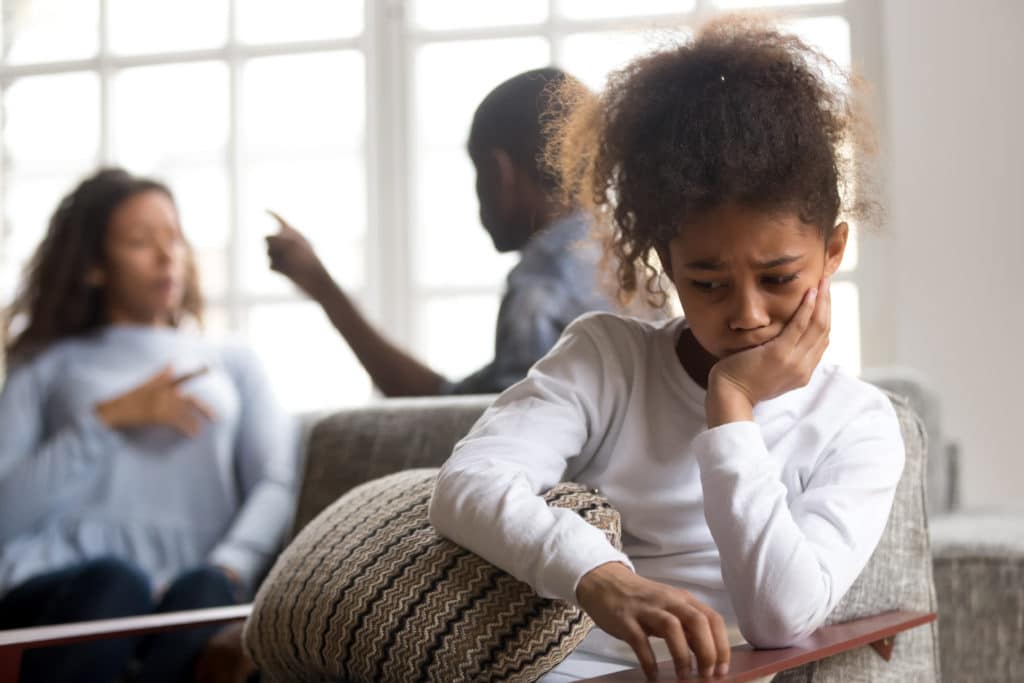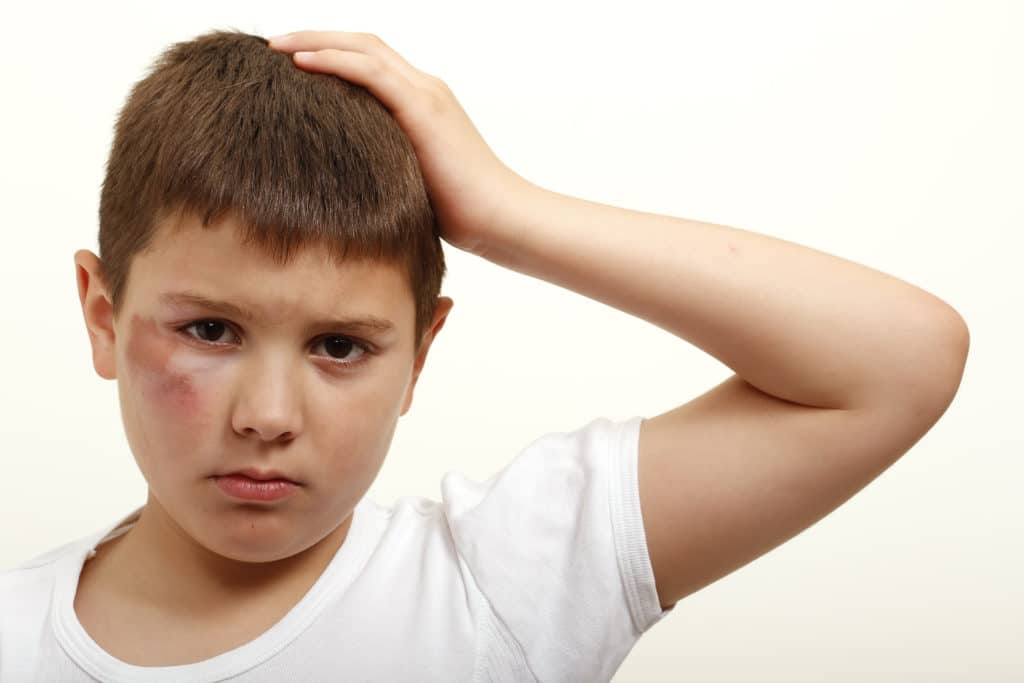How to Prevent Childhood Trauma + Ways to Cope If You Have It

Every child deserves a happy, healthy childhood; unfortunately, this is not the case for many children. From domestic violence to divorce, illness, and more, several factors can lead to children experiencing trauma.
Childhood trauma can profoundly and profoundly affect every aspect of a child’s life. It can interfere with their ability to form trusting relationships, do well in school and manage their emotions. And that is why we must understand what childhood trauma is and how to prevent it or heal it if it has already occurred.
In this article, we will explore the effects of childhood trauma and discuss proven solutions and coping techniques.
Table of Contents
What is Childhood Trauma?

Childhood trauma is any event or experience that causes a child psychological, physical, or emotional damage. This trauma can include things like abuse (physical, emotional, or sexual), neglect, domestic violence, witnessing violence, divorce, illness, and more.
Unfortunately, childhood trauma is more common than you might think. According to the National Child Traumatic Stress Network (2016), 47% of children in the US have experienced at least one traumatic event by the time they reach 17 years old.
That is a high margin, showing that any child, regardless of their background or circumstances, is at risk of experiencing trauma. As a parent or guardian, it is crucial to be aware of the signs of trauma and know how to prevent it or deal with it if it does occur.
How Childhood Trauma Affects Adulthood
If you don’t deal with childhood trauma, it can have a lasting effect on adulthood. These aftereffects include physical, mental, and emotional health problems.
Some of the most common effects of untreated childhood trauma include:
- Anxiety
- Depression
- Substance abuse
- Eating disorders
- Relationship problems
- Sleeping disorders
- Flashbacks
- Suicidal thoughts
If you are struggling with any of these issues, seek help immediately.
How Childhood Trauma Affects Relationships
One of the most common effects of childhood trauma is relationship problems, which can manifest in many ways, including:
- Difficulty trusting people
- Fear of abandonment
- Difficulty with intimacy
- Mood swings
- Anger problems
If you’re struggling in your relationships, seek help from a therapist or counselor.
How Childhood Trauma Affects the Brain
Childhood trauma can also have a lasting effect on the brain.
Some of the most common effects of childhood trauma on the brain include:
- Difficulty regulating emotions
- Impulsivity
- Difficulty with decision-making
- Memory problems
- Difficulty concentrating
How to Prevent Childhood Trauma
You can keep your child from experiencing trauma. Here’s how:
Create a Safe, Stable, and Nurturing Home Environment
This is one of the most important things you can do to prevent childhood trauma. Creating a safe and stable home environment will help your child feel secure and loved.
It will give them a sense of stability and help buffer the effects of stressful experiences they might have outside the home.
Ensure Your Child Has a Strong Support System
In addition to a safe and stable home, ensure your child has a strong support system. This support system could include family members, friends, teachers, or anyone your child feels comfortable talking to.
Having someone who will listen and understand can make a big difference for a struggling child.
Avoid Exposing Your Child to Traumatic Events
Whenever possible, avoid exposing your child to traumatic events. Keep them away from violence (on TV, in movies, or real life), graphic news stories, and anything else that could cause them psychological damage.
Of course, you can’t always control what your child experiences, but if you know they will see something that could be traumatic, talk to them beforehand about it. This conversation will help them process the experience and hopefully prevent long-term damage.
How to Heal Childhood Trauma if You Have It
If your child has already experienced trauma or you’re the victim, get help as soon as possible. The sooner you receive treatment, the better the chances of fully recovering.
- -How to Learn relaxation techniques you can do anywhere.
- -Identify anxiety in yourself and others.
- -Learn how to better react to situations and set a firm foundation for dealing with stressful situations.
- Use Natural Supplements, Dietary, and Lifestyle changes to help you feel less anxious sooner.
- I am a Counselor in Training, so I share what I learn through my education and experience and the price will go up shortly--- However! You will get all of the free updates I make to the course at no additional charge to you! As I learn through research, my education, and personal experimentation of new supplement regimens I will share them with you!
There are different ways to heal childhood trauma, including:
Therapy
One of the most effective ways to heal childhood trauma is through therapy, and this can be done individually, with a group, or with the whole family.
Cognitive behavioral therapy (CBT) is a type of therapy that is particularly effective in treating trauma. CBT helps people change how they think and feel about their experiences.
Grounding Techniques
Grounding techniques are a type of self-care that can be very helpful in managing trauma symptoms. These techniques help people stay present and focused on the here and now rather than dwelling on past trauma.
There are many different grounding techniques you can use, including:
- Focusing on your breath
- Focusing on a specific object in the room
- Using your senses to focus on what you can see, hear, smell, taste, and feel
- Repeating a mantra or affirmation to yourself
- Doing something physical like Exercise
Forgiveness
Sometimes all that is needed to heal childhood trauma is to forgive. This includes forgiving yourself if you feel guilty about what happened and forgiving the person who caused the trauma.
Forgiving does not mean forgetting what happened or excusing the person who hurt you; it is simply a way to release the anger and pain you are holding onto.
Find a Support Group
If you’re struggling to heal from childhood trauma on your own, consider joining a support group. It’s an avenue to connect with others who understand what you’re going through.
There are many different types of support groups available, so you should be able to find one that meets your needs.
Final Thoughts
Childhood trauma can affect the rest of your life if you don’t get help. If you’re struggling with the effects of childhood trauma, seek professional help as soon as possible. Don’t suffer in silence, and don’t resign yourself to a life of pain. You deserve to heal and be happy.
And if you’re a parent, do what you can to prevent your child from experiencing trauma. Create a safe and supportive environment and help them learn how to cope with stress. Also, ensure you are their best friend, so they’re comfortable sharing anything with you.
Originally posted 2022-09-05 03:48:41.
Megan Santiago
Latest posts by Megan Santiago (see all)
- How to Find a Trauma Therapist in Tampa - September 30, 2024
- Get Your Child to Listen: A Clear-Cut Way To Feel Heard - March 10, 2024
- Help With Bills – How to Get Financial Assistance - March 10, 2024

